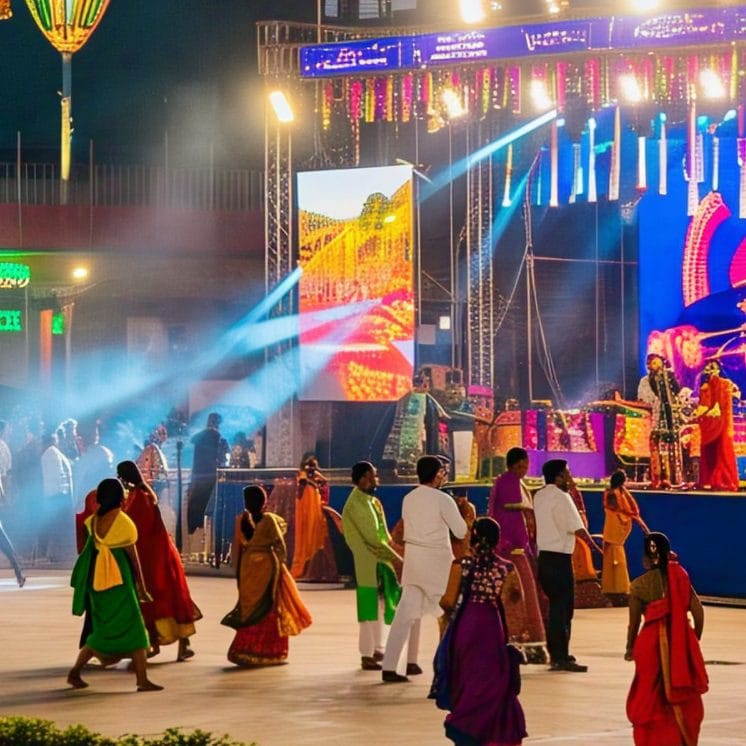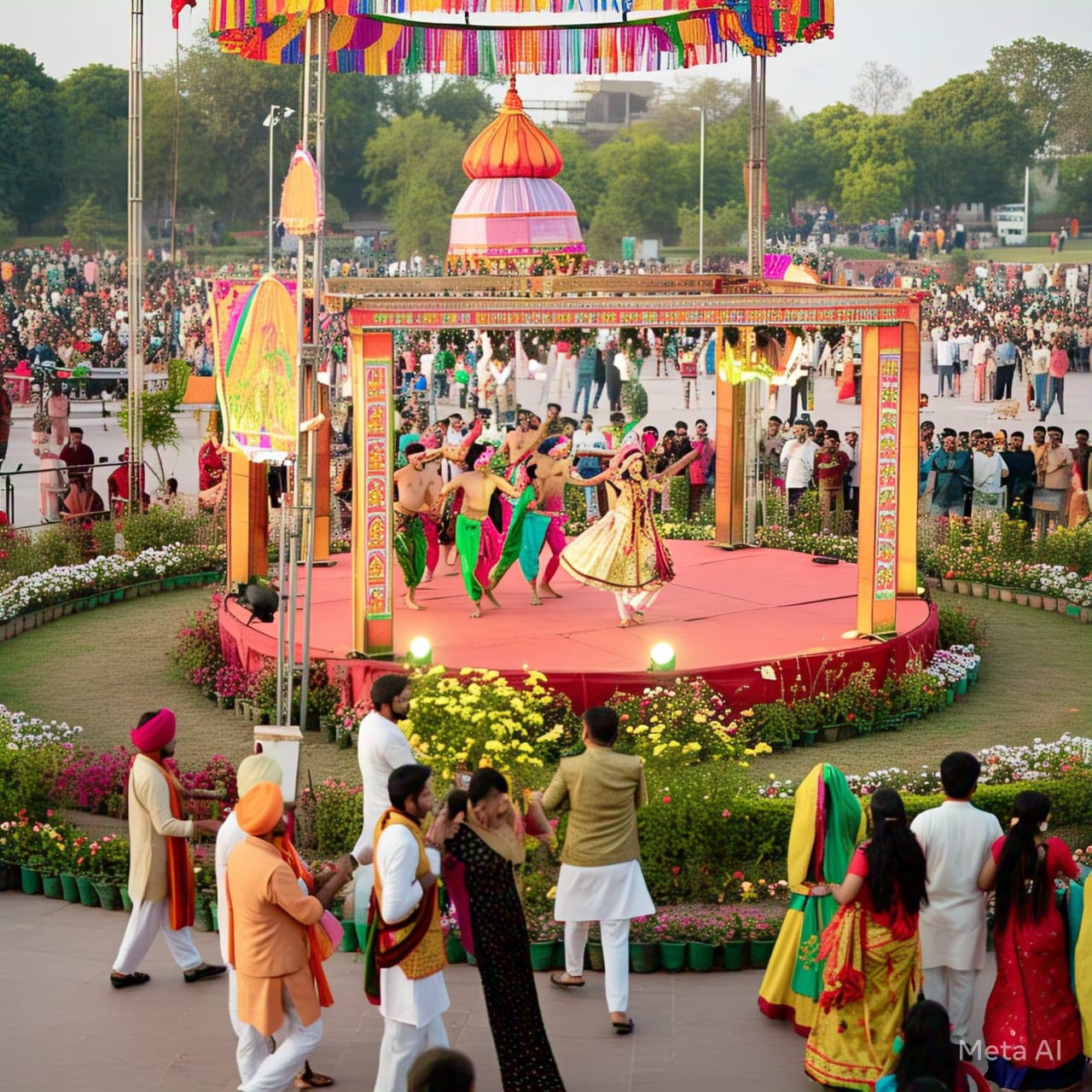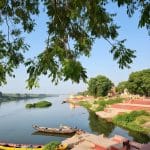Cultural Festivals of Ayodhya
Ayodhya, the birthplace of Lord Rama, is not just a city of mythological legends—it is also a cultural canvas of vibrant festivals, divine rituals, and sacred celebrations. Every season in Ayodhya brings with it a spiritual aroma, attracting devotees and tourists from across India and the world. Whether you’re a pilgrim or a culture enthusiast, visiting during Ayodhya’s festivals will offer you a deeper connection to its timeless traditions.

Why Festivals in Ayodhya Are Unique
Ayodhya’s festivals are deeply spiritual, emotionally uplifting, and rooted in ancient traditions. The city celebrates not just with rituals but with colorful processions, cultural performances, music, dance, and grand lighting ceremonies. With every festivity, Ayodhya transforms into a living epic, narrating stories from the Ramayana through rituals and celebrations.
Top Cultural Festivals of Ayodhya
1. Deepotsav (Ayodhya Diwali)
When: October–November
Highlights:
- Over 20 lakh diyas lit along the ghats of the Saryu River
- Grand Ramayan-based performances
- Massive fireworks show
- Cultural exhibitions and traditional folk dances
Why Visit: Deepotsav is the biggest Diwali celebration in the world, and Ayodhya becomes a golden sea of light. It is the ideal time to visit for unforgettable visual and spiritual experiences.
When: March–April (Chaitra Navami)
Highlights:
- Processions of Lord Rama’s birth
- Rituals at Ram Janmabhoomi
- Recitations from the Ramayana
- Decorative displays at temples and shrines
Why Visit: It’s the birthday of Lord Rama, making it the holiest and most significant festival of Ayodhya. The devotional energy is at its peak, drawing lakhs of pilgrims.
3. Kartik Purnima
When: November
Highlights:
- Holy dip in the Saryu River
- Devotees lighting thousands of diyas on riverbanks
- Evening aarti at ghats
Why Visit: The city is spiritually charged with pilgrims performing ritual baths and lighting floating lamps—a photographer’s dream and a pilgrim’s delight.
4. Ram Leela Mahotsav
When: October (9 days before Dussehra)
Highlights:
- Daily Ram Leela performances
- Dramatic enactments of the Ramayana by local and national troupes
- Open-air theaters across Ayodhya
Why Visit: Watching Ram Leela in the very city where the epic is set offers a once-in-a-lifetime spiritual experience.
5. Shravan Jhula Mela
When: July–August
Highlights:
- Processions of Lord Ram and Sita’s idols on swings
- Cultural fairs with crafts, music, and food
- Rituals at Ram ki Paidi
Why Visit: This monsoon celebration is a joyful cultural experience that’s perfect for families and heritage lovers.
6. Vivah Panchami
When: November–December
Highlights:
- Celebration of Lord Rama and Sita’s wedding
- Grand rituals at temples
- Ceremonial processions re-enacting the divine marriage
Why Visit: Witnessing the divine wedding of Ram and Sita performed with full Vedic traditions in Ayodhya is a deeply moving spiritual moment.
Best Time to Visit Ayodhya for Tourists
| Month | Festivals/Celebrations | Weather |
|---|---|---|
| October–November | Deepotsav, Dussehra, Kartik Purnima | Pleasant and festive |
| March–April | Ram Navami, Holi | Warm days, spiritual buzz |
| July–August | Shravan Jhula, Monsoon rituals | Rainy but lush and green |
| November–December | Vivah Panchami | Cool and vibrant |
If you’re planning a cultural trip, October to March is ideal for good weather and immersive experiences.
Travel Tips for Festival Season
- Book in advance with travel companies like TripCosmos.co—festivals attract huge crowds
- Hire a local guide to understand the significance of each ritual
- Carry light ethnic wear for temple visits and comfortable shoes for walking
- Don’t miss the evening aartis at Saryu Ghat during festivals
- Respect local customs and participate with humility
How TripCosmos.co Makes Your Festival Journey Memorable
As a trusted travel company based in Varanasi, TripCosmos.co offers customizable Ayodhya festival packages, including:
- Accommodation near temples and ghats
- Guided tours of festival sites
- Cultural walk-throughs of Ayodhya’s landmarks
- Comfortable transportation from Varanasi, Lucknow, Prayagraj, and nearby cities
- Access to VIP darshan, Ram Leela shows, and traditional events
FAQs About Cultural Festivals in Ayodhya
1. Which is the biggest festival in Ayodhya?
Deepotsav (Diwali) is the grandest celebration, lighting up the city with millions of diyas.
2. Can tourists participate in Ayodhya’s festivals?
Yes, most festivals are open to tourists, and you’re encouraged to join a guided experience for better understanding.
3. Is it safe to travel to Ayodhya during festivals?
Absolutely! Local authorities ensure full security, and our guides at TripCosmos.co manage safe, smooth experiences.
4. What should I wear during festivals in Ayodhya?
Modest traditional or casual clothes are ideal. Avoid shorts or revealing attire, especially when entering temples.
We recommend booking at least 2–3 months in advance, especially for hotel stays and guided experiences.
Celebrate the Soul of India in Ayodhya
Whether you seek spirituality, culture, or just pure awe, the festivals of Ayodhya deliver it all. Let TripCosmos.co take you on a journey where mythology meets modern devotion in spectacular style. The lights of Deepotsav, the chants of Ram Navami, and the drama of Ram Leela await you in the sacred city of Ayodhya.
Book your Ayodhya Festival Tour with TripCosmos.co and witness the divine like never before!




